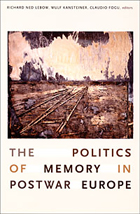
This timely study of the recent migration tides explores the political and economic factors that have influenced the rise of immigration in postwar Europe and the United States. It seeks to explain immigration in terms of the globalization of labor markets and the expansion of civil rights for marginal groups in the liberal democracies.
Immigration raises emotional issues of nationalism and citizenship. Territorial norms of community and nationhood come into conflict with the liberal ideal of free, rational individuals seeking a better life for themselves and their families. Yet immigration has been an essential ingredient in economic growth. How then can liberal states reconcile economic pressures to maintain adequate supplies of labor with political pressures to protect citizenship and safeguard rights that are accorded, in principle, to every member of society?
Three prominent democracies—France, Germany, and the United States—are chosen for study because their experience illustrates the dilemma that liberal states must face when trying to control immigration. The author carefully distinguishes differences in the factors that influence each state’s struggle to resolve the status of the “guest” worker and the “illegal” immigrant. Yet he finds that the accretion of rights for aliens and the globalization of markets have led to a convergence of immigration policies in the industrialized West.

An extensive introduction contains reflections on the significance of Europeans’ memories of World War II and a conclusion provides an analysis of the implications of the contributors’ findings for memory studies. These two pieces tease out some of the findings common to all seven countries: for instance, in each nation, the decade and a half between the late 1960s and the mid-1980s was the period of most profound change in the politics of memory. At the same time, the contributors demonstrate that Europeans understand World War II primarily through national frames of reference, which are surprisingly varied. Memories of the war have important ramifications for the democratization of Central and Eastern Europe and the consolidation of the European Union. This volume clarifies how those memories are formed and institutionalized.
Contributors. Claudio Fogu, Richard J. Golsan, Wulf Kansteiner, Richard Ned Lebow, Regula Ludi, Annamaria Orla-Bukowska, Heidemarie Uhl, Thomas C. Wolfe
READERS
Browse our collection.
PUBLISHERS
See BiblioVault's publisher services.
STUDENT SERVICES
Files for college accessibility offices.
UChicago Accessibility Resources
home | accessibility | search | about | contact us
BiblioVault ® 2001 - 2024
The University of Chicago Press









